When you go to the hospital, the doctor sometimes asks if you have health insurance, do you know why?
Now we go to the hospital more and more, there is a phenomenon you must have found. When you go to the doctor to see the doctor, the doctor will often ask you have medical insurance? Is the provincial health insurance or city health insurance? Many friends do not understand, this is why? See a doctor with no medical insurance or which medical insurance has a relationship?
Actually, it is true that most of the public hospitals in our country are designated hospitals for medical insurance. This means that the medicines, devices, treatment fees, etc. used in this hospital that are covered by the medical insurance can be reimbursed by the medical insurance. The doctor will ask you whether you have medical insurance, but also for your medical insurance reimbursement. However, it is important to point out that our national health insurance does not provide full coverage, which means that only a part of the medicines or treatments are covered by the health insurance catalog, and not all of them can be reimbursed, and even if they are reimbursed, the reimbursement rate is not the same. When a doctor uses medicines or devices that are not on the list, he or she needs to ask the patient or his or her family for permission to use them because they cannot be reimbursed by the health insurance. Of course, there is also the reason that there are certain rules and regulations that the doctor must follow. So be sure to ask if you are medically insured.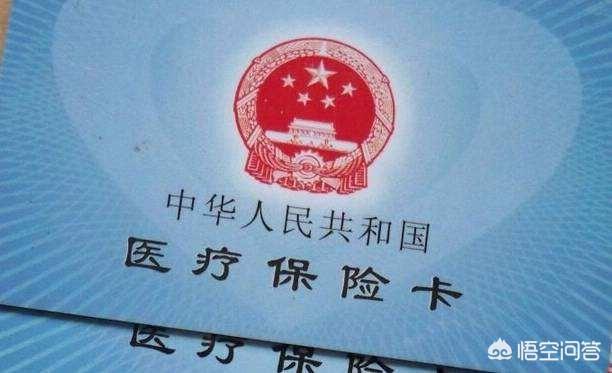
In addition to this, we have found that patients with Medicare pay less for hospitalization deposits. Why is this so? This is because, due to those who are reimbursed by health insurance, patients naturally pay less out-of-pocket. Those who do not have health insurance and pay out-of-pocket, on the other hand, have to bear more of the costs themselves.
Therefore, it is very necessary for hospital visits to figure out health insurance, so please bring your health insurance card with you when you visit the hospital.
It's a process of the doctor's work.
It's also a sign of responsibility, and if you have health insurance, the reimbursable portion is directly deductible and only pays what you need to pay out-of-pocket, preserving your rights.
If you have health insurance, you will also try to use the health insurance catalog portion of your medication, and if there is an optional portion, the doctor will also ask if you are using a completely out-of-pocket or reimbursable one.
If the patient has a relevant commercial insurance in addition to medical insurance it is best to tell the doctor as well, and even make appropriate communication.
Case and diagnostic reports and medical bills are an important basis for claims, and commercial medical care involves a waiver of liability for the part of the most disputed:
- 1. Pre-existing conditions or hereditary diseases are not covered;
- 2, buy before the relevant diseases are not truthfully informed, affecting the insurance company's underwriting conclusions, also not pay.
Some patients then fail to communicate with the first instance, and are even more careless themselves, and speculative statements or past conditions and hereditary disorders that may have an impact on the existing condition, but with uncertainty, are reflected in the case or diagnostic report.
Insurance company adjusters in the claims processing as an important basis for exemption, and ultimately produce claims disputes, such cases occur from time to time, if the communication in advance, there may not be claims on the problem.
In summary, if you have insurance, you must talk to your doctor beforehand, and if you have commercial insurance, it is best to report the case in time to understand the claims process and what materials need to be provided for claims, etc.
When you go to the hospital, the doctor sometimes asks if you have health insurance, do you know why?
When you go to the hospital to see a doctor or hospitalized , usually, the doctor will ask you if you have health insurance. Many people don't understand a thing and have some doubts about this issue. Today we will talk about this matter.

Before that, let's have a look at the health insurance policy.。
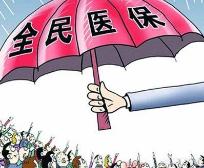
Medical insurance is divided into two kinds of employee medical insurance and urban residents' medical insurance, in the hospitalization of the patient, you can enjoy the proportion, according to the requirements of the write-off of hospitalization costs. In the outpatient clinic, employee health insurance patients to do "special examination", you can coordinate the direct write-off. This is not the case for residents.
While enjoying medical expenses medical insurance underwriting, patients need to comply with the policies and requirements related to medical insurance underwriting. At least at this stage, health insurance policies are still very strict and have more requirements. When you are responsible for your own medical expenses, there are not so many requirements.

Whether you are hospitalized or an outpatient, the doctor may prompt you to swipe your card when he asks if you have health insurance. Or some tests cannot be written off with a credit card.
hospitalization:
Doctors ask patients whether they have medical insurance, in order to try to choose the medicines in the medical insurance catalog in the choice of treatment and medication, in this way, the patient can be partially written off. Even if the medicine is in the medical insurance catalog, but does not meet the requirements for medical insurance reimbursement, the doctor will inform the patient, and the patient will decide whether to use the medicine at his own expense. However, there are many more procedures for patients with medical insurance.
At outpatient visits:
The doctor asks if the patient has health insurance.
First, the outpatient clinic now has a "chronic disease" and "major" category of health insurance patients, health insurance for these two types of patients with medication and examination program management is very strict, in the enjoyment of the relevant types of diseases more than the cost of write-offs at the same time, but also limited to the health insurance card in the treatment for the relevant types of diseases, Reimbursement. When the patient has other diseases, the outpatient expenses will not be written off. Doctors are penalized if they prescribe medicines that are out of scope.
Secondly, there are some illnesses for which Medicare patients cannot swipe their cards for underwriting. Doctors will inform patients accordingly.
Actually, let's be honest. Doctors are not willing to admit Medicare patients due to the fact that Medicare has too many requirements, restrictions and red tape. These restrictions impose various penalties on doctors and hospitals. And, patients don't understand.

Finally, there is no need to demonize everything doctors do. The principle of treatment for the same disease is the same for Medicare patients and regular patients. There may be slight differences in treatment depending on each person's condition or whether it is accompanied by other diseases.
Doctors will not prescribe you more medication just because you are a Medicare patient, nor will they prescribe you indiscriminately just because you are not a Medicare patient. All expenses incurred by hospitalized patients are itemized for consumption.
And then even if you are a patient with health insurance, when you need to apply the drugs in the health insurance catalog but use them beyond the scope, the doctor will inform you, and it is up to the patient to decide whether to use them or not.

Lastly, it is recommended to always visit a specialist in a regular hospital.
Feel free to leave comments and corrections in the comments section.
As patients, we go to the hospital to see a doctor, if the doctor suddenly asked us whether we have health insurance, we may be in the heart of the muttering: this doctor is not going to play any trick? Is it because there is no health insurance this question, to treat me differently? .....
If we do not understand what the role of health insurance in the end, have this kind of heart, I can understand, as the saying goes: do no harm, but not to prevent people from doing so! But here is what I want to say: With this kind of heart idea, we may be using it in the wrong place. If we have this kind of heart, the probability is that we must have misunderstood the doctor.
Next, let's focus on: why do doctors ask us the question of whether we have health insurance?
We are all medical insurance, which refers to social medical insurance. It is a social insurance system for the basic medical needs of workers in case of illness by the state and society in accordance with laws and regulations. At this stage, medical insurance is mainly divided into three forms: basic medical insurance for urban workers, basic medical insurance for urban residents and new rural cooperative medical care.
The reason for the previous statement is that we may have some misunderstandings about the question of doctors asking us if we have health insurance. This is mainly due to the lack of understanding of the role of health insurance. As patients, we may usually only know to pay medical insurance, but we may be completely unaware of the use of medical insurance, what circumstances can be reimbursed with medical insurance, and medical insurance can be reimbursed how much, there is no limit to the use of medication and so on. ...... If you know some of it, you may not know much about it. But as a doctor is different, they often come into contact with a variety of patients, may be different patients will have different insurance needs to wait for the end of the treatment need to apply for claims, so they are like health insurance this basic social health care system for the treatment of patients how to reimbursement, can be reimbursed how much, and drug limitations and so on are quite understandable. Therefore, asking these questions during the visit will help him to give the patient some diagnostic advice and medication guidelines.
There are at least two main reasons why doctors need to check in advance if a patient has health insurance:
1. Social Security medication restrictions.We all know that our medicines are categorized as Class A, B and C drugs. Medical insurance can insure class A drugs and part of class B drugs, like there is a part of class B drugs and class C drugs are all belong to the part of self-financed drugs, not in the scope of reimbursement of medical insurance, all need to be our own out-of-pocket payment. Therefore, if the doctor knows in advance that we have medical insurance, we can give priority to the use of social security can be reimbursed by the class A and B drugs, for the need to scenarios that require the use of class C drugs, the doctor will also be synchronized with us to discuss whether to confirm the use of this type of drugs, if agreed, then sign the self-payment for the use of the drug.
2. The availability of health insurance affects the payment of hospitalization deposits.If we need to be hospitalized, we must first pay a hospital deposit before the hospital will arrange for us to be admitted. Doctors can find out how much we need to pay for the hospitalization deposit by asking us in advance if we have medical insurance. If we have medical insurance, the deposit can be less, and if after the medical insurance account in accordance with the proportion of medical insurance reimbursement of medical expenses, the remaining out-of-pocket expenses can be deducted directly through the individual account of medical insurance, spend the money of the medical insurance card, so that the deposit we paid before the hospitalization can be fully refunded to the hospital. If we don't have medical insurance, the deposit will be higher and we have to pay it all by ourselves. If the deposit is not enough to cover the cost of treatment, we will have to pay it back on an ongoing basis.
Therefore, if we go to the hospital and the doctor takes the initiative to ask us whether we have medical insurance, don't worry, it means that we have met a reliable and responsible doctor who will give us a relative diagnosis and treatment advice according to our actual situation.
At the same time, this also gives us patients a wake-up call, if we go to the hospital to see a doctor, regardless of whether the doctor has taken the initiative to ask about whether there is medical insurance, if we have their own medical insurance or other commercial insurance, need to reimbursement after the completion of the treatment, should actively inform the user, so that the doctor will also be combined with the specific protection of the insurance we have taken out, targeted to us for more effective treatment. This will allow us to get better and more effective treatment, but also to ensure that our treatment costs can be reimbursed through the insurance we have. It is also convenient for us to collect the claim information and apply for insurance claims after we are discharged from the hospital.
As a physician, let me answer, it is true, doctors sometimes ask patients, do you have health insurance, and in my experience, there are several main reasons for this:
(1) Health insurance has a lot of restrictions and many medicines cannot be used
The types of drugs in the medical insurance catalog are relatively small, only covering some of the most basic, daily use of drugs, there are some effective drugs, may not be in the scope of reimbursement of medical insurance, the doctor asked you whether you have medical insurance, need to ask for your consent, if I prescribe you medical insurance can not be reimbursed for drugs, you can not accept, if you agree, so that you will prescribe drugs. Similarly, there are also some tests that are self-funded and cannot be reimbursed by health insurance.
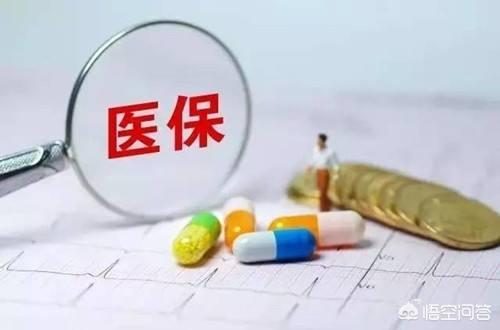
(2) Prescription of medicines for Medicare patients, with limitations on the course of treatment
You come to the hospital and there are many patients with chronic illnesses who want to be prescribed medication for a month or even several months at a time. However, the state does not allow such prescribing, there is a maximum dosage and time for prescribing at one time, and doctors are not allowed to prescribe for too long, and if they are found out, the doctor will be held liable.

(3) For hospitalized patients, Medicare also has some limitations
Before the doctor gives you a hospitalization certificate, he will usually ask you whether you have medical insurance or not. For patients with medical insurance, the hospitalization deposit can be paid less because the medical insurance can reimburse you. For self-pay patients, the hospitalization deposit needs to be paid more. After hospitalization, if you are a patient with medical insurance, the doctor will try to use the examination and consumables within the scope of medical insurance, but there are still some surgical consumables or examination items that are not reimbursed by medical insurance, and you need to obtain your consent beforehand so that they can be used for you.
I hope that our health insurance will be better and more good drugs and consumables can be reimbursed so that more patients can be benefited.
It matters a lot whether you have health insurance or not when you go to the doctor and ask for medical care. Doctors ask for it, don't always be so dirty and nasty thinking of doctors as black.
If you have health insurance, you are entitled to reimbursement of medical expenses to alleviate your financial burden. The reimbursement of medical expenses varies from one level of hospital to another, with different reimbursement schemes and different ways of reimbursement.
Large hospitals provincial city tertiary hospitals, the reimbursement rate will be lower than the county and municipal hospitals, county and municipal hospitals and lower than the reimbursement rate of township health centers. The purpose is to let the sick family do not what disease to provincial hospitals.
Hospitals that don't have Medicare billing, leaving Medicare patients behind won't work, and you have to tell your doctor ahead of time. Don't stay for a while without reimbursement.
Some rules in hospitals are only reimbursable for inpatient hospitalization and outpatient out-of-pocket expenses. Some outpatient hospitalization can be reimbursed. There are also limits on hospitalization, for example, a patient cannot be hospitalized for more than $5,000 at a time, and if it exceeds $5,000, the attending physician will have to pay for it out of his own pocket.
With health insurance, you must choose the medication for health insurance. What is not covered by health insurance is definitely out-of-pocket. Not all medicines are available to the patient, and the doctor is strictly limited. If you need to use drugs outside of medical insurance, you have to sign an informed consent form.
The issue of reimbursement routes is usually settled within the hospital. Various conditions of off-site health insurance are different and require various supporting documents. In some cases, all that is required is a receipt of hospital charges, while in others, a certificate of diagnosis of the disease from the attending physician is required to be attached.
Another particularly crucial point is that Medicare patients admitted to a hospital must notify the health insurance center within N hours, and reimbursement of expenses will be denied beyond the time limit.
Doctors ask if the patient's family is insured, so don't always think the wrong way. Another thing that should not be left to chance is that the name of the person who is insured must be in accordance with the name of the document. Do not use a baby name, a pen name, a small name, or a big name. Some patients even make up their last names on the spot.
Actually, a doctor's visit is the same visit with or without health insurance.
The point is that the health care sector is tightly regulated and the people who make the rules are not doctors, yet they give many restrictions.
Many drugs are not reimbursed, health insurance pays for the most basic and relatively inexpensive drugs that can satisfy the majority of patients. Some people want to use more expensive imported better drugs, however, health insurance is not reimbursed. This is a contradiction.
In case, the doctor gives the patient a drug that is not covered by the reimbursement, the cost is deducted to the hospital and then to the doctor. It's not easy to be a doctor these days.
For example, having surgery. The surgery can be either open or minimally invasive laparoscopic. However, Medicare only reimburses the cost of the open procedure, but not the relatively more minimally invasive means of laparoscopy. So how do you choose as a doctor? How to choose as a patient?
Doctors of course to say understand, ask clearly ah. Some people, have medical insurance, hope that the operation recovery fast less suffering, and do not care about the reimbursement, he chose laparoscopy self-pay checkout; some people have medical insurance, but poorer, not willing to pay out of pocket, hope that the state to cover the cost, then he chose to bear the open abdomen.
Therefore, the doctor has to ask whether the patient has health insurance and what type of health insurance it is before knowing the corresponding health insurance rules.
I believe that many people have this medical experience, when you visit the doctor or hospitalization, the doctor will carefully ask if you have medical insurance, which kind of medical insurance, whether it is provincial medical insurance, city medical insurance or rural cooperative medical care. The reason why they ask so clearly has a lot to do with China's national conditions and health insurance policies.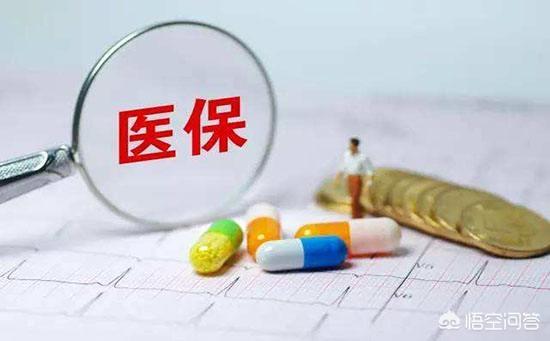
1. Reimbursement of different medicines for different health insurance: this is a policy formulated by the National Health Insurance Center, the provincial health insurance, municipal health insurance and cooperative medical care have a special catalog of medicines, in the catalog of medicines can be reimbursed, beyond the scope of the catalog of out-of-pocket expenses for drugs. There is a big difference in the medicines used in different medical insurance catalogs, for example, albumin nanopaclitaxel, Herceptin has entered the provincial and municipal medical insurance, but it is a self-financed medicine for cooperative medical care patients. Some of the drugs in the cooperative medicine catalog are not in the provincial and municipal health insurance, in order to reimburse the patient for its less expensive, try to ask for clarification, and choose the drugs in the respective catalog. If a patient needs to choose a self-financed drug because of his/her condition, he/she must communicate with the patient to obtain his/her consent and signature.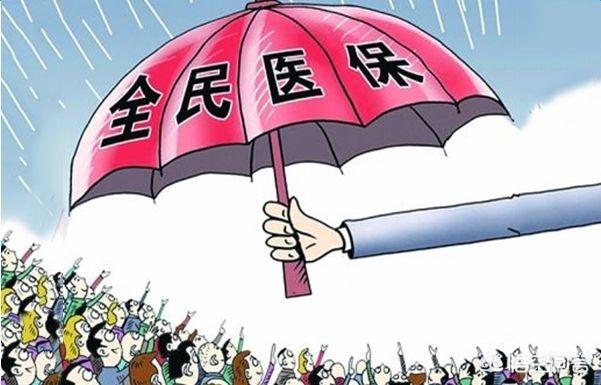
2. Health insurance policy is very strict: due to China's huge volume, the population is large, health insurance to cover the vast majority of people, so that all the people benefit, there must be a strict management system, in the hospitalization process, the health insurance management center for the health insurance patients have a lot of regulations, such as the ratio of drug ratio, the ratio of consumables, the strict use of antibiotics, the total cost of limitation, the limit on the number of days of hospitalization, and so on, and so on, more than the assessment of these indicators doctors at any time doctors may have their bonuses deducted anytime they exceed these assessment targets. Doctors not only have to see patients, but also have to be able to do the math, within the limits of the regulations, with as little money as possible to get relief.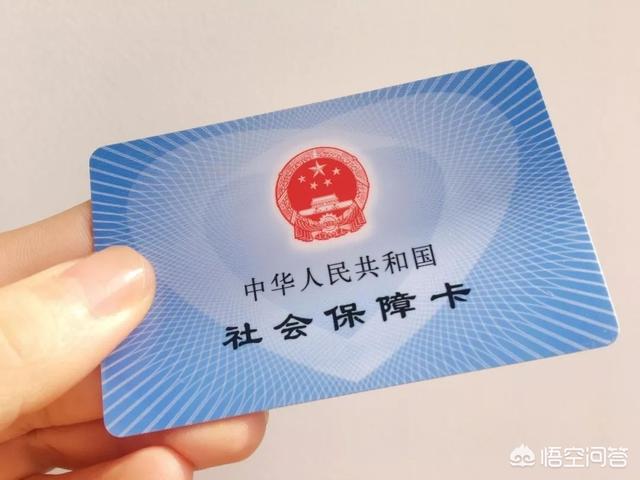
For outpatients, many people have high blood pressure, coronary heart disease or emphysema pulmonary heart disease, these patients have health insurance can apply for outpatient chronic disease, outpatient slow patients in addition to the threshold fee, the reimbursement rate is still relatively high. There are also patients with malignant tumors and uremia health insurance patients can apply for outpatient special, outpatient special reimbursement rate is higher, such as outpatient chemotherapy, radiotherapy, endocrine tumor treatment (breast cancer, prostate cancer) can be additionally applied for outpatient targeted treatment, the vast majority of the costs can be reimbursed. Doctors can help patients apply for this after asking, but the policy varies from region to region.
For self-financed patients: In fact, there are very few self-financed patients at present, and even if they are traveling to other places for medical treatment, they can be reimbursed a certain amount of expenses back in their localities. If the patient is indeed fully self-funded and the economic situation is not good, the doctor will have the discretion to choose "good value for money" program, and the use of more basic medication, not only to save money but also to cure the disease. For patients with good financial conditions, the use of more advanced treatments and higher-end medications with the patient's knowledge, and not subject to health insurance policies, the doctor's treatment of such patients will be more relaxed, without the feeling of constraints.
According to the national policy trend, the urban residents' health insurance will be merged with the new rural areas in 2019, and the health insurance resources will be further integrated. This policy should be more favorable to the people, and I hope the new policy will be more convenient for doctors to see patients.
In most hospitals nowadays, when a patient registers or is hospitalized, the computer system can automatically show whether the patient is medically insured or not, or which kind of medical insurance, and there is no need to ask. So, will there be any difference in treatment and medication when doctors treat patients with medical insurance or self-financed patients? It is really possible that there will be.
National health insurance, is mainly to meet the basic medical care, if all the drugs or treatment is reimbursable, then rely on everyone to pay the cost of health insurance is impossible to maintain, which is why there are a lot of drugs belonging to the full proportional reimbursement (Category A), part of the proportional reimbursement (Category B), out-of-pocket (Category C). With the national health insurance coverage is now significantly expanded, most people have health insurance, and for those who have health insurance, are willing to use health insurance reimbursement of drugs, policy requirements, health insurance patients also need to try to use reimbursement of drugs and programs. For patients with medical insurance to use purely self-financed items that exceed a certain standard, in principle, they are required to inform the patient. Therefore, in fact, for doctors, in fact, is not willing to give medical insurance patients to use self-financed drugs. However, not all medicines reimbursed by health insurance are cheap. There are some drugs that are actually quite effective and inexpensive, which are very good in terms of practicality, but unfortunately, they are not covered by reimbursement for various reasons. Then these drugs, if the health insurance patients, it is not very suitable for use, although the effect may be good, but the patients will have the opinion, why not use reimbursement of drugs; at the same time increase the proportion of out-of-pocket expenses, in the policy will not be able to say. But for self-financed patients, the use of such drugs is very appropriate. I think this is the biggest difference between medical insurance patients and self-financed patients. For self-financed patients, they can basically only consider medical treatment, and on this basis, decide on the treatment according to the patient's financial conditions. In addition, many of the consumables used in surgery are single-use, self-financed materials. The surgery can be completed without the use of these materials, only that it may increase the duration of the surgery, or the use of these materials may make the surgery more comfortable and minimally invasive, which, in the case of a medically-insured patient, requires more detailed communication with the patient about whether or not to use them.
Cerebral infarction patients self-funded hospitalization 12 days hospitalization costs more than 1,100 yuan, enjoy forestry employees health insurance cerebral infarction patients hospitalized 3.5 days hospitalization costs 2,872 yuan, 90% reimbursement, forestry town workers health insurance cerebral infarction patients self-funded 513 yuan! Forestry urban workers' health insurance heart failure patients referred to the city's cardiovascular hospital hospitalization 1.5 days hospitalization costs 2079 yuan cardiovascular disease medical insurance section told me 25% reimbursement!
This question and answer are from the site users, does not represent the position of the site, such as infringement, please contact the administrator to delete.